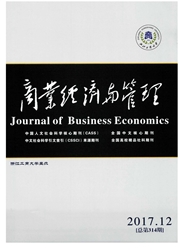

 中文摘要:
中文摘要:
文章从以往研究出发,归纳出上下级信任的三种理论视角,分别是社会身份的理论视角、社会认知的理论视角和社会交换的理论视角。社会身份这一视角强调上下级之间的相似性,包括社会类别的相似性和信息的相似性,是上下级信任建立的基础和起点;社会认知视角关注了信任方对被信任方行为特征、人格类型以及双方关系和情境的认知分析,进而做出信任的决策。上述两种理论视角都以信任方为信任主体,强调信任建立在信任方对被信任方判断的基础上,而社会交换视角下的信任则从信任双方的互动出发,探究信任如何在双方社会交换的互动过程中得以建立。文章将以往领导和下属信任的研究通过上述三种理论视角加以分类,旨在总结归纳领导下属间信任研究的全貌并对现存的问题提出了建议,指明了未来可能的研究发展方向。
 英文摘要:
英文摘要:
Based on previous literatures on trust between leaders and subordinates, we generalized the researches from three theoretical perspectives, namely, similarity derived from social identity theory, social cognition theory and social exchange theory. The former two perspectives focused on the trustor as the sponsor of trust relationship, while social exchange theory keeps a watchful eye on the interaction of both trustors and trustees, namely: leaders and subordinates. To be concrete, social identity theory laid the foundation of trust, thus similarity is the basis for building trust between leaders and subordinates, including similarities in social category and similarities in information aspects. From the perspective of social cognition theory, trustors make their decisions of whether they should trust others by judging the information about the characteristics of trustees, the relationship between them and the contexts. Lastly, when we mention trust from the perspective of social exchange theory, we focus on the whole set-up process of exchange relationship, in other words, the process of the interaction between leaders and subordinates and how they build trust along the process. In conclusion, we show the whole picture of researches on trust between leaders and subordinates with the lens of three perspectives. Moreover, by illustrating the limitations of current literatures, we lead a direction for further research.
 同期刊论文项目
同期刊论文项目
 同项目期刊论文
同项目期刊论文
 期刊信息
期刊信息
